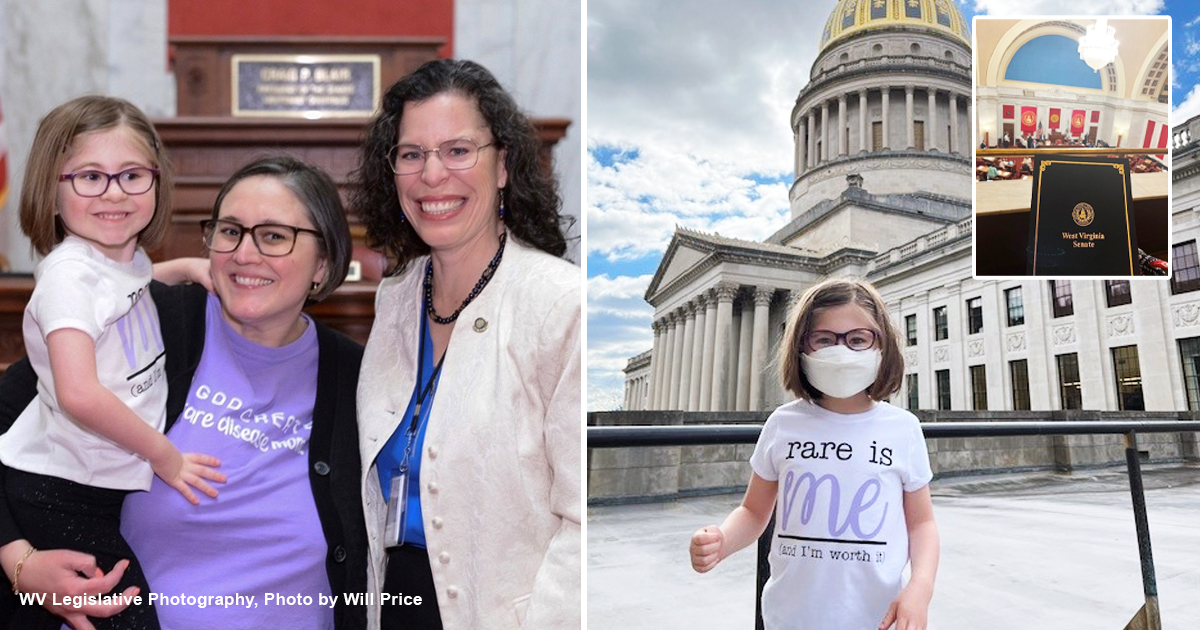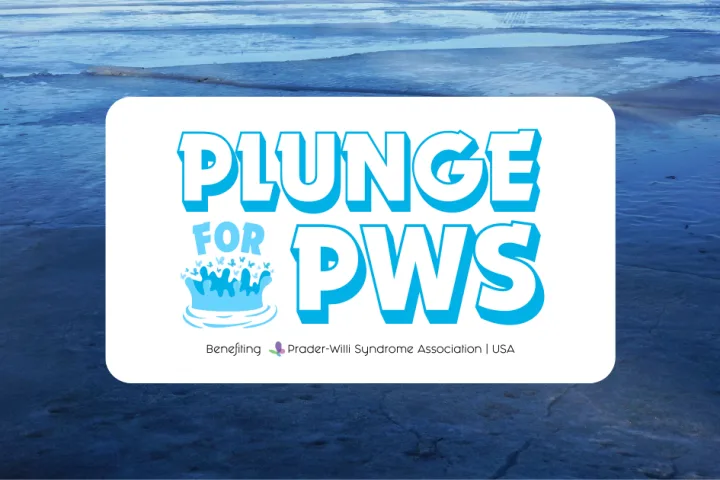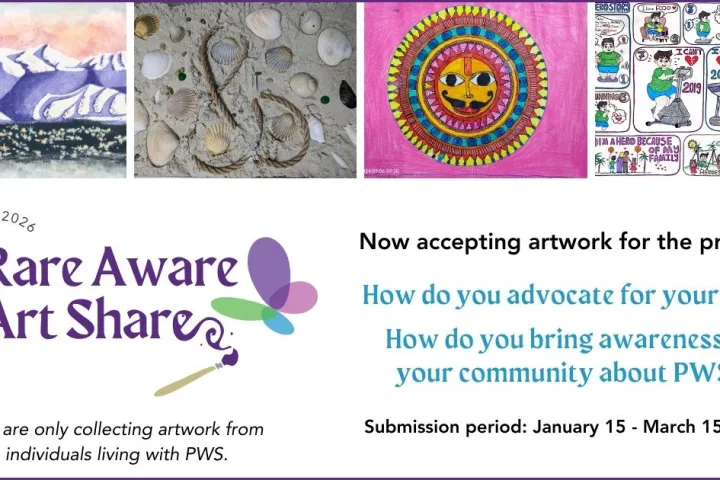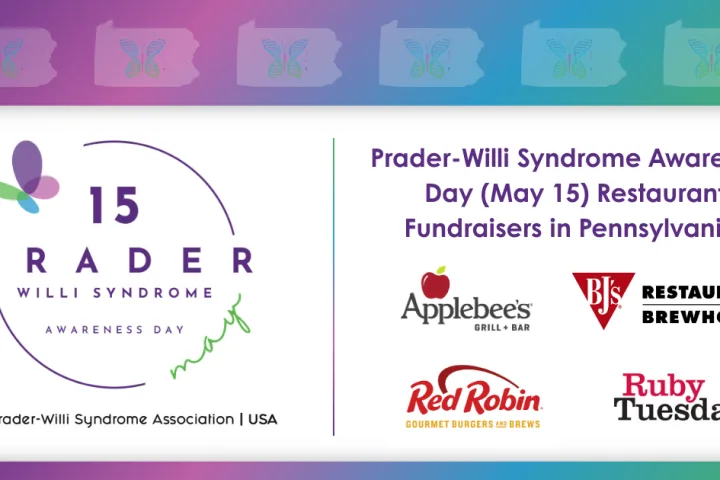Rare Disease Day, which falls on February 28th each year, helps shine a light on the roughly 7,000 recognized rare diseases. To assist in this effort, we have been asking our community to tell us how you "share your rare" for Prader-Willi syndrome. One unique and impactful way we have heard from families is how they've received a Rare Disease Day Proclamation from their local city and state officials.
Sheri, mom to Lyra living with PWS, is one of these parents who received a Rare Disease Day Proclamation from the State of West Virginia. Below, Sheri shares the steps she took to get the Proclamation and what motives her to share her rare!
-------------------------------------------------------------------------------------------------------------------------------
Connecting with an elected official in your state is very important. They may not even know about Prader-Willi syndrome, or that a resident/residents in their state have this diagnosis. They are very busy with their matters of interest to get through when the session is open, that it might be hard to see past their own agendas. Educating and advocating is an ongoing part of who I am as a parent, and something I think is very important. It is the only way to get the word out that we need help and support.
I had initially contacted Senator Patricia Rucker, who is our county's elected official, about lighting the capital up for rare disease day. She came back offering a resolution. Until being honored on the senate floor on rare disease day, we have felt little support from the state of West Virginia. As most states do not know about PWS,, they do not recognize it as a diagnosis in the state for programs like Medicaid Waiver or other state programs. Programs that are very important to the financial support for the families and also the financial support for the future of the child with Prader-Willi Syndrome.
As I listened to Senator Rucker read the proclamation, I knew that my voice had been heard. I had the attention of her constituents who heard her words. Prader-Willi Syndrome was given attention for once in our state. It might not have solved any issues that day, but it could be the start of more conversations in the future- history starts somewhere.
I told Lyra where we were going, and that she was being honored. Every person we passed, she proudly told them, "em em me". I understood her to be saying "honor me". She had this energy that I rarely see in her. She wanted to be seen. She wanted PWS to be heard too.
We walked away with an official document from the state of West Virginia, and so much hope. I look forward to the future and what it may bring.
- Sheri
Share this!





 Perry A. Zirkel has written more than 1,500 publications on various aspects of school law, with an emphasis on legal issues in special education. He writes a regular column for NAESP’s Principal magazine and NASP’s Communiqué newsletter, and he did so previously for Phi Delta Kappan and Teaching Exceptional Children.
Perry A. Zirkel has written more than 1,500 publications on various aspects of school law, with an emphasis on legal issues in special education. He writes a regular column for NAESP’s Principal magazine and NASP’s Communiqué newsletter, and he did so previously for Phi Delta Kappan and Teaching Exceptional Children. Jennifer Bolander has been serving as a Special Education Specialist for PWSA (USA) since October of 2015. She is a graduate of John Carroll University and lives in Ohio with her husband Brad and daughters Kate (17), and Sophia (13) who was born with PWS.
Jennifer Bolander has been serving as a Special Education Specialist for PWSA (USA) since October of 2015. She is a graduate of John Carroll University and lives in Ohio with her husband Brad and daughters Kate (17), and Sophia (13) who was born with PWS. Dr. Amy McTighe is the PWS Program Manager and Inpatient Teacher at the Center for Prader-Willi Syndrome at the Children’s Institute of Pittsburgh. She graduated from Duquesne University receiving her Bachelor’s and Master’s degree in Education with a focus on elementary education, special education, and language arts.
Dr. Amy McTighe is the PWS Program Manager and Inpatient Teacher at the Center for Prader-Willi Syndrome at the Children’s Institute of Pittsburgh. She graduated from Duquesne University receiving her Bachelor’s and Master’s degree in Education with a focus on elementary education, special education, and language arts. Evan has worked with the Prader-Willi Syndrome Association (USA) since 2007 primarily as a Crisis Intervention and Family Support Counselor. Evans works with parents and schools to foster strong collaborative relationships and appropriate educational environments for students with PWS.
Evan has worked with the Prader-Willi Syndrome Association (USA) since 2007 primarily as a Crisis Intervention and Family Support Counselor. Evans works with parents and schools to foster strong collaborative relationships and appropriate educational environments for students with PWS. Staci Zimmerman works for Prader-Willi Syndrome Association of Colorado as an Individualized Education Program (IEP) consultant. Staci collaborates with the PWS multi-disciplinary clinic at the Children’s Hospital in Denver supporting families and school districts around the United States with their child’s Individual Educational Plan.
Staci Zimmerman works for Prader-Willi Syndrome Association of Colorado as an Individualized Education Program (IEP) consultant. Staci collaborates with the PWS multi-disciplinary clinic at the Children’s Hospital in Denver supporting families and school districts around the United States with their child’s Individual Educational Plan. Founded in 2001, SDLC is a non-profit legal services organization dedicated to protecting and advancing the legal rights of people with disabilities throughout the South. It partners with the Southern Poverty Law Center, Protection and Advocacy (P&A) programs, Legal Services Corporations (LSC) and disability organizations on major, systemic disability rights issues involving the Individuals with Disabilities Education Act (IDEA), Americans with Disabilities Act (ADA), and the federal Medicaid Act. Recently in November 2014, Jim retired.
Founded in 2001, SDLC is a non-profit legal services organization dedicated to protecting and advancing the legal rights of people with disabilities throughout the South. It partners with the Southern Poverty Law Center, Protection and Advocacy (P&A) programs, Legal Services Corporations (LSC) and disability organizations on major, systemic disability rights issues involving the Individuals with Disabilities Education Act (IDEA), Americans with Disabilities Act (ADA), and the federal Medicaid Act. Recently in November 2014, Jim retired.